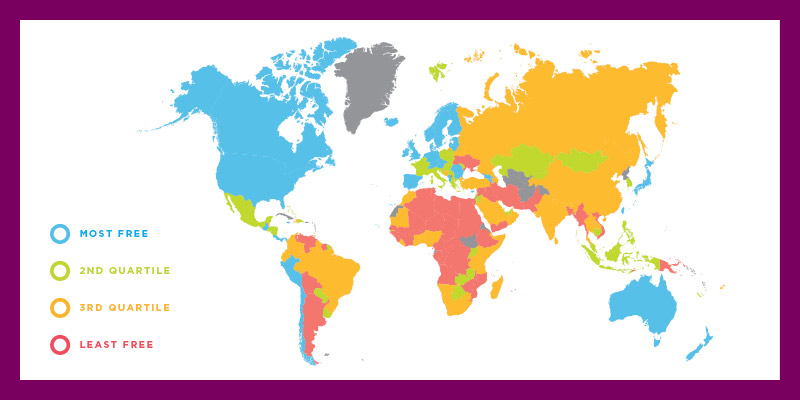Economic Freedom of the World: 2021 Annual Report is the world's premier measurement of economic freedom, ranking countries based on five areas—size of government, legal structure and property rights, access to sound money, freedom to trade internationally, regulation of credit, labour and business. In this year's report, which compares 165 countries and territories, Hong Kong is again number one—although China's heavy hand will likely lower Hong Kong's ranking in future years—and Canada (14th) trails the United States (6th).
 Executive Summary - Atlantic Canada
Executive Summary - Atlantic Canada Executive Summary - National
Executive Summary - National Read the Full Report
Read the Full Report View the Infographic - Atlantic Canada
View the Infographic - Atlantic Canada View the Infographic - National
View the Infographic - National Read the News Release - Atlantic Canada
Read the News Release - Atlantic Canada Read the News Release - National
Read the News Release - National Read the News Release - Ontario
Read the News Release - Ontario Read the News Release - British Columbia
Read the News Release - British Columbia






